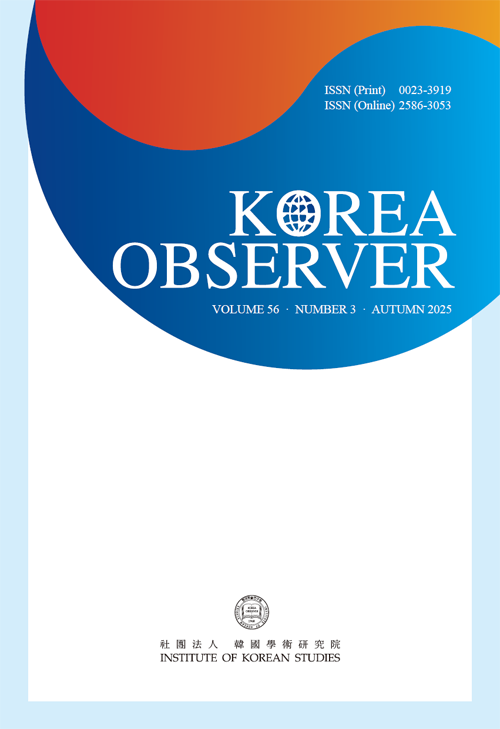US-Japan-Korea Trilateral Cooperation: Analyzing the Implications for Korea Within the Context of US Alliance Control and Cost
- 한국학술연구원
- Korea Observer
- Vol 56, No 3
-
2025.09357 - 384 (28 pages)
-
DOI : 10.29152/KOIKS.2025.56.3.357
- 3

This research analyzed US-led trilateral cooperation with Japan and Korea and its capabilities in regional diplomacy and security affairs. It also examined the major turning points for Korea within US-Japan-Korea trilateral cooperation. Considering the US's heterogeneous strategies toward Japan and Korea, this study analyzed current issues between the three countries and their regional agendas in East Asia. This study reveals the US's main regional approach strategies since the Obama administration. Why is the US eager to cooperate with its major Asian allies? How did the Korean government respond to Washington's strategies and its urge to coordinate with Japan? While there has been much research on the arrangement trilateralized by the US, this study sought to examine how Korea responded to trilateral cooperation and how the two recent Korean governments responded to the Biden administration. Moreover, this paper examined whether Korea voluntarily depends on cooperation and whether this is necessary.
Ⅰ. Introduction
Ⅱ. Contextualizing US-led Trilateral Cooperation
Ⅲ. Theorizing Alliance Control and Burden-sharing
Ⅳ. Analyzing Trilateral Cooperation and the Implications for Korea
Ⅴ. Conclusion
References
(0)
(0)